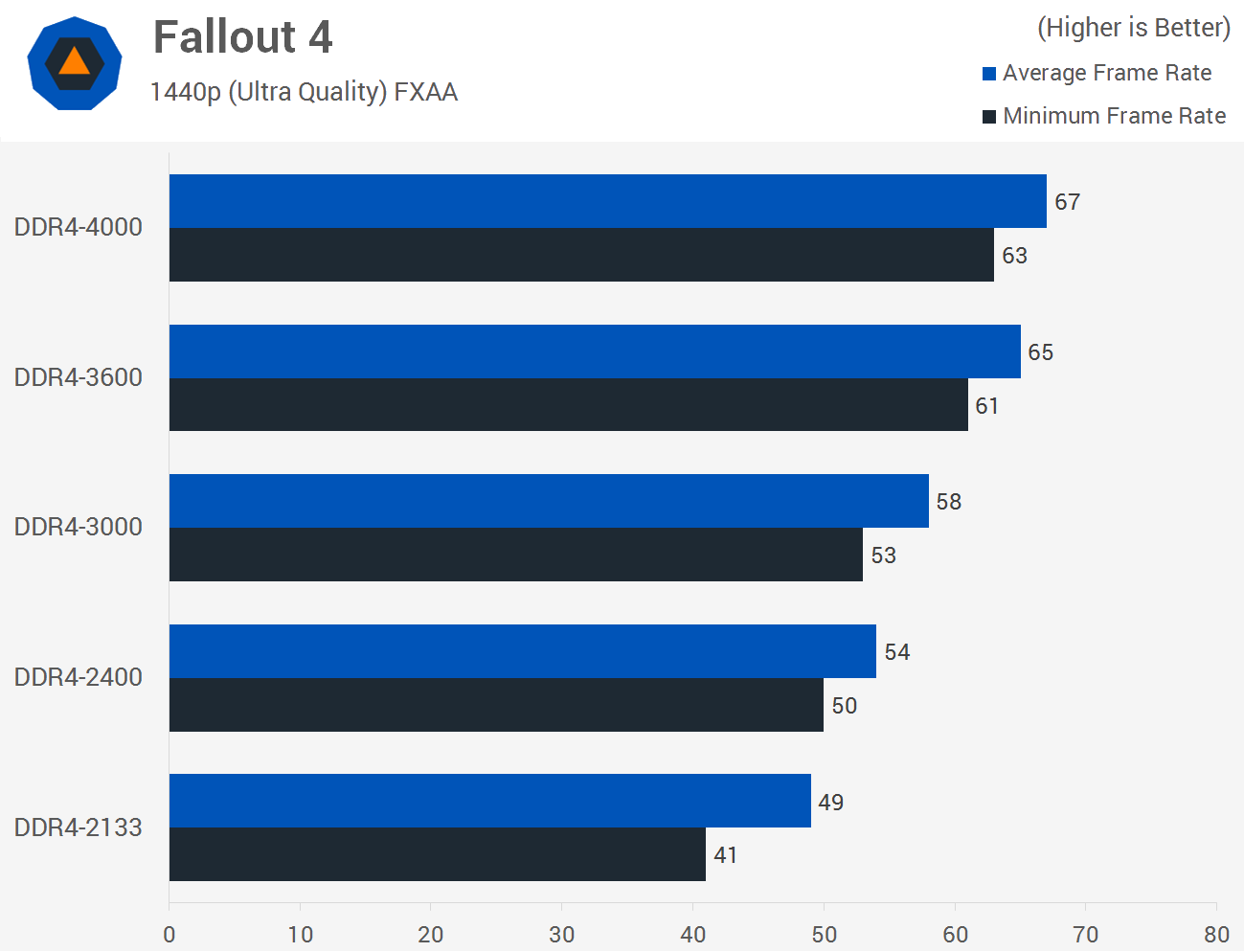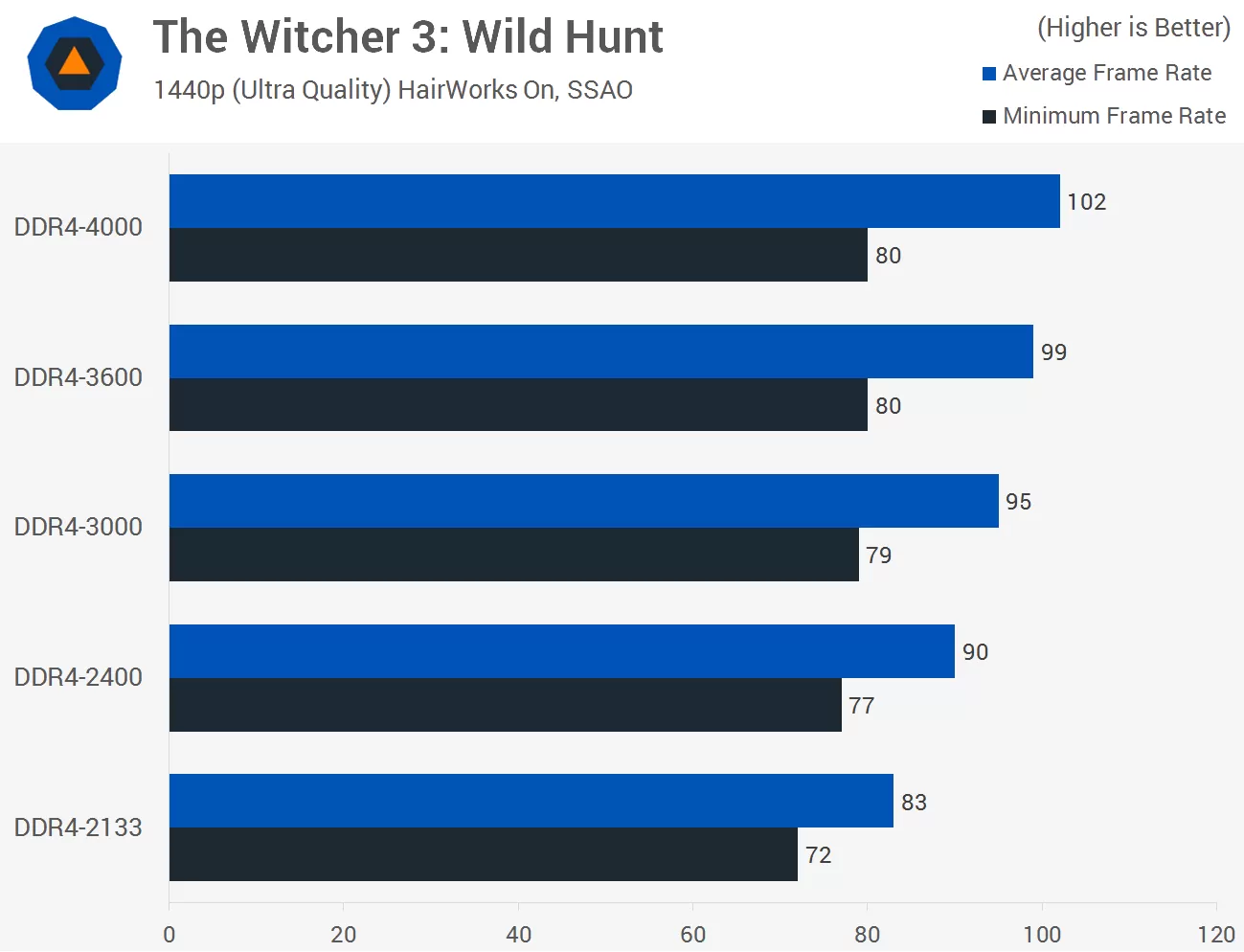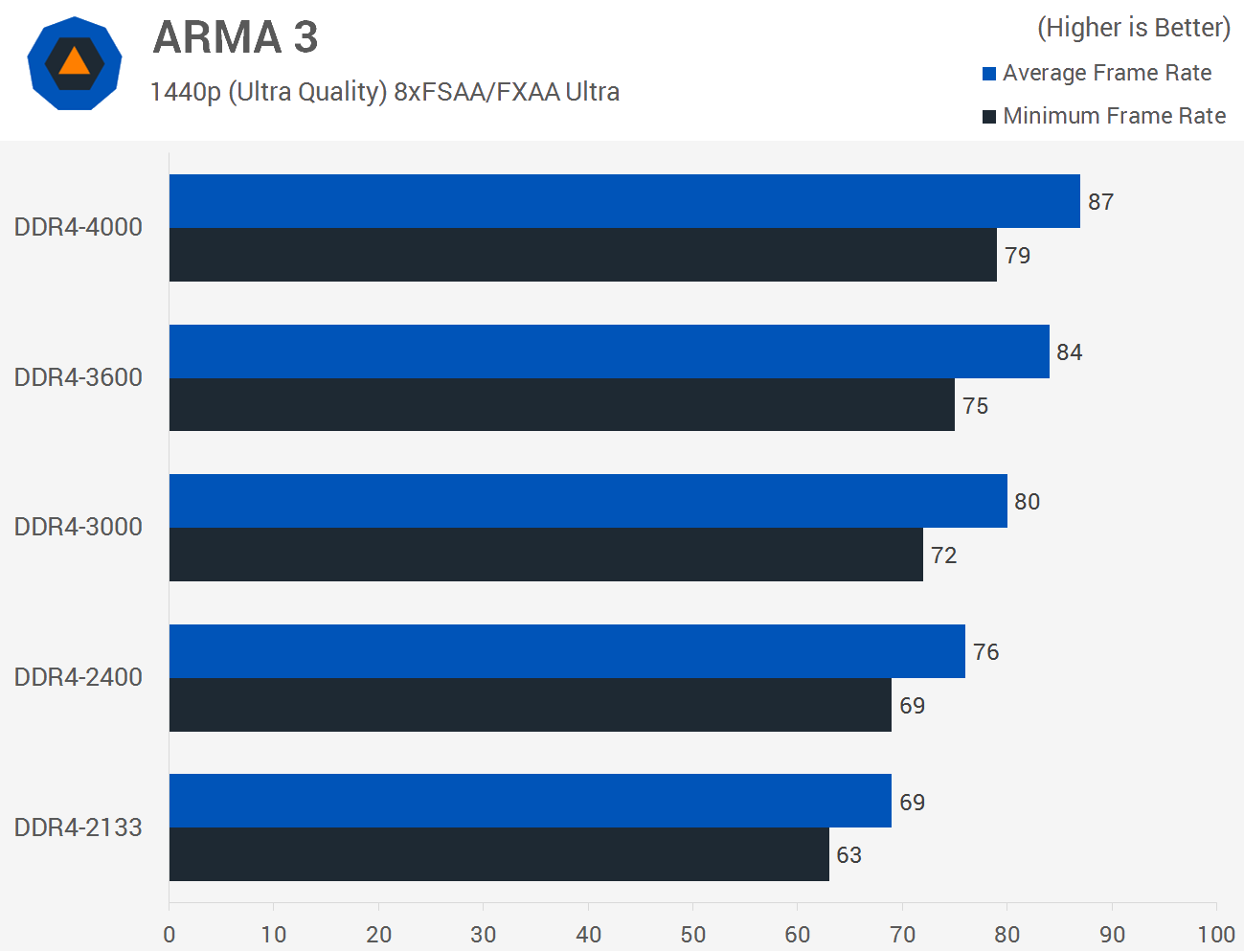- Jun 22, 2013
- 143
- 5
- 81
It would be interesting to see the minimum frames situation.
Not only that, but I'd love them to do deeper analysis. Maybe all gain from HEDT processors is from larger l3 cache and not having more cores? That would make that hexa core Zen with 16MB of cache even more epic deal.

Nice post. Except that your statements make ZERO logical sense, as the i7 5775C is neither 4GHz, nor does it have a 'huge' L3, and has no quad-channel support either.You are going to be disappointed if you think its due to more cores and not due to 4Ghz, huge L3 and quad channel memory.
http://www.tomshardware.com/reviews/multi-core-cpu-scaling-directx-11,4768.html
Same reason why a 5775C can match a 6700K.

Nice post. Except that your statements make ZERO logical sense, as the i7 5775C is neither 4GHz, nor does it have a 'huge' L3, and has no quad-channel support either.
If you meant EDRAM, then I ask, how many retail CPUs that you can buy have EDRAM? Dual vs Quad channel make no difference in games.
Oh and that graph does not come from the article linked either.
So let me see if im understanding you correctly what your trying to say is that,The EDRAM on the 5775C is a large L4 cache. And its linked because its a classic example when the bottleneck is elsewhere than core performance.
So let me see if im understanding you correctly what your trying to say is that,
Because modern games are job based engines having more cores and threads means you can alleviate the challenges in cache misses by having more concurrency. Thus in a given amount of time more jobs get completed and thus higher frame rates.
So what your really trying to say is more cores is the NOW and future of gaming?
Wow, that's one hell of a stretch 0_o Cache misses are a massive problem for single threaded performance too, not just multithreaded. If you miss in L3 and have to go all the way to main memory, your thread stalls for thousands of cycles. Adding in a big L4 means that a lot of the time you will reduce that latency, and hence improve per-thread performance.
Or you can have more cores, Shintai tries to pretend that its the extra cache reducing misses, well why isn't the amd 8mb l3 cpu performing the same as intels 8mb l3 cpu then?
In the case of gaming, game engines have been job based system since like the 2nd generation of games on the PS3 xbox360. Only now that the Consoles and PC hardware is so close are we seeing the benefits of those systems on the PC side as there is far less reworking of code base required.
Or you can have more cores, Shintai tries to pretend that its the extra cache reducing misses, well why isn't the amd 8mb l3 cpu performing the same as intels 8mb l3 cpu then?
And its not news that 6700K/7700K is memory starved is it?
Well it is in my book considering the very highend is 4200 and low end is 2400, drop lower i dont care make it 2800 15-15-15 then.Haha, so now DDR4 3200C16 is "middle of the road"
Yes it is, you ( like always ) get things confused. Any processor likes LOWER LATENCY MEMORY. memory timings / clock speed = latency. I dare you to prove a 7700k is memory bandwidth limited with middle of the road DDR4 ( say 3200 16-16-16 (10ns)) in games.
Nope drop the speeds if you want, just dont go with stupid DDR4 that has a memory latency of 15+ns. i pick 3200 because i feel its the best performance for money.So now you tell me SKL/KBL needs 33% faster memory than used in the test? Thanks

Nope drop the speeds if you want, just dont go with stupid DDR4 that has a memory latency of 15+ns. i pick 3200 because i feel its the best performance for money.
But still waiting for this test seeing you are so sure games are memory bandwdith bound. If you knew anything about how a core accesses memory in intel chips you would know why im not that worried. Hint: there is a maximum number of outstanding memory requests per core.




Its funny you mention a subject that have been covered quite a bit. And if you think its due to latency instead, prove it



Sigh do you even read here let me put it in big writing for you
MEMORY LATENCY
what is the memory latency of those memories?
What DDR4 memory did Computerbase use for Kaby Lake in their tests?


